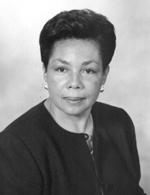Highlights of Implementing Requisite Organization at Roche Canada
- Requisite. org eliminated bonuses to align employee goals with those of the organization. The company was able to roll bonuses into base salary. The strategic planning process gave us an opportunity to make sure that we were connected vertically and horizontally.
Charlotte Bygrave At Roche, the CEO and the top team were looking for ways to ensure that the company could not only survive the changes going on in the industry at the time but to be successful, ...
Transcript of the presentation video
NOTE: This transcript of the video was created by AI to enable Google's crawlers to search the video content. It may be expected to be only 96% accurate.
Charlotte Bygrave At Roche, the CEO and the top team were looking for ways to ensure that the company could not only survive the changes going on in the industry at the time but to be successful, to be able to adapt and move ahead in the face of all those changes. So we decided to go down the Requisite organization path, but not until our senior team managers were well educated in the approach because one of the things that you find with reorganization is that it requires a commitment. It's a major commitment and it's a commitment over an extended period of time. If you really do want this approach embedded in your organization and you make a decision that this is the way we want to do things around here. So we wanted to make sure that once we got started, our managers were informed about the whole approach and had made a decision that this was the way they wanted to go. So a big part of the project for us was educating our senior managers. Once that was done, we were able to move full steam ahead in terms of implementation. It involved looking at our organization levels. We didn't have a problem with the actual number of levels, but we certainly did have to look at the work going on at those various levels. So that was a major challenge, which was defining what that work should look like in addition to that structure piece, making sure that we had not just the right levels, but the work was aligned with the levels. We also spent a lot of time on talent pool assessment, one of the biggest successes, and that was a great success, the talent pool assessment. But one of the biggest successes at Roche was understanding the different types of teams, coordinative teams, and project teams, and how you attach these teams to the organization to get critical cross-functional work done. The pharmaceutical industry is probably no different than any other industry. In order to get a high-quality product out there in the hands of the customer required that our functions, marketing, sales, and clinical research, work together in a different fashion. And the Requisite organization approach brought us the solutions that we needed to the point that a significant amount of time was shaved off of our product launch process and given the cost of bringing a drug to market, that was really significant. So on balance, on the front end, it went extremely well in getting everyone on board and getting just the entire approach implemented. There were some other major parts to our project and that was the compensation piece. We did something which I think most corporations would consider rather radical and that we eliminated bonuses. We did that with good reason though. At the time that Requisite.org came along and the implementation was there, we had a number of problems. We'd experienced a number of problems and concerns with large bonuses. And after much deep thought on the part of our senior managers, we decided that the most effective thing to do was to eliminate them. Now, it didn't mean that we took money away from our employees pharmaceutical industry. Unfortunately, we were able to do something positive, which was to roll bonuses into base salary. But going forward, it was quite clear that we would have a base salary program versus base salary and bonus. Something else that Requisite organization brought to us, of course, it perhaps should go on the front end is it brought us a far more coherent and meaningful strategic planning process. Here was truly a way of aligning employee goals with those of the organization. The strategic planning process gave us an opportunity to make sure that we were connected not only vertically through the organization, but horizontally. The CEO with whom we've been working on this approach was, fortunately for him, promoted to a much greater responsibility or a larger responsibility in another region. And we were without that level of commitment and capability going forward.
Major organizations and consulting firms that provide Requisite Organization-based services





